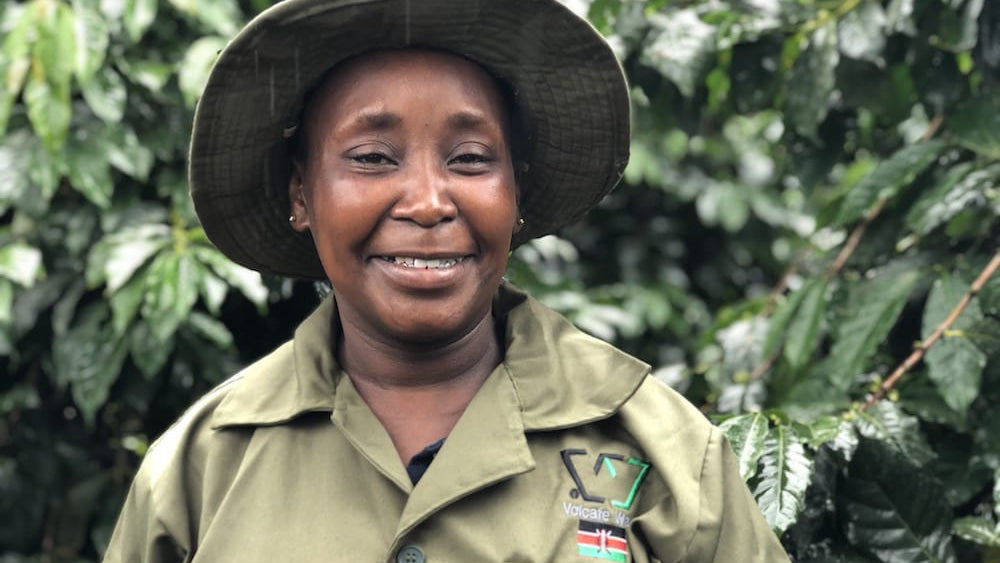The Nairobi Coffee Exchange occupies the first two floors of a rather innocuous looking building in the heart of the city – an open air market sprawls right outside its doors with traders selling their wares often simply laid out on a piece of cloth on the bare earth of the sidewalk.
It’s a bustling and chaotic part of the city – Nairobi traffic at its worst, buses and matatus hooting and jamming up the roads, guys carrying huge loads on their backs weaving through the traffic and mud. In a way it makes sense that this is where most of the country’s coffee is bought and sold.
Once inside I feel like I’ve travelled back in time to the 1960s. Built in 1963, the auction room is high ceilinged and wood clad with rows of seats laid out like a Roman amphitheatre. Coffee traders bid for each lot by pressing a discreet button in front of their seats. Perhaps the only nod to the 21st century is the massive computer screen which dominates the centre of the room listing the lot, the price and the buyer.
Upstairs the dusty NCE sample room is filled with rows upon rows of brown 9KG sample bags of green coffee that are up for sale in that week’s auction. The lots vary in quality from the low T grade beans (basically floor sweepings) to the high quality AB and AA lots which fetch higher prices accordingly. It’s an amazing sight to see although to be honest I’m still trying to get my head round the logistics of the place. Despite some problems, the auction that is held here every Tuesday is widely considered to be one of the most transparent price and distribution systems for fine green coffees anywhere in the world.
Leaving Nairobi behind we headed into the lush green hills of Kiambu county with Taylor Winch’s Cyprian Omuse. Cyprian is responsible for the Volcafe Way program in the region whose objectives are to help coffee farmers improve productivity, quality and resource efficiency. Essentially aiming for sustainable profitability or in Cyprian’s words ‘to transform coffee production into farming as a business’.
We visited the amazing Rosemary Nungari, who runs her father’s farm of 12,000 coffee trees at Gichuka. Since joining the Volcafe Way programme she has seen her production rise form 67 bags to 83 bags within a year. This is largely down to best agricultural practices – especially stumping the trees every five years. While quality has improved by making sure only the ripe cherries are picked and also then processed on the same day as picking.
At Ciumenene, farmer Daniel Njoroge produces some very high quality coffee. His farm consists of 2000 coffee trees most of which are grown under shade. With lots of tall indigenous trees on the farm as well as fruit and macadamia nut trees, the biodiversity at Cuimenene is fantastic and it was a real pleasure listening to Daniel talk with such passion about his farm to the background music of birdsong.

